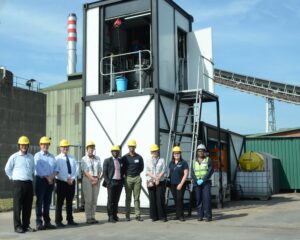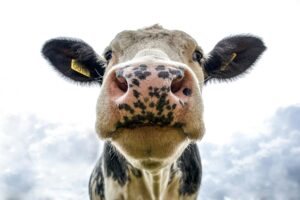Press release
The South African government continually emphasises the important role that artisan training plays in the quest to improve the high unemployment rate in the country. Its goal is to produce 30 000 artisans in South Africa per annum by 2030. This is because artisanal type training has been touted to be the key to unlock the country’s demand for scarce skills.
“In South Africa the agricultural sector, and the beef industry in particular, is also facing a critical skills shortage. We need a range skills from electricians and fitters and turners to other technical skills like meat cutting and food processing,” says Cindy Nkgoeng (photo below), HR Group Manager at Beefmaster Group, one of Kimberley’s largest private employers, speaking ahead of Workers Day, observed annually on 01 May.

She says the company is, in the face of a youth unemployment crisis both in the country and in Kimberley, committed to playing a role in addressing these issues. “We want to equip the youth with critical skills to make them employable in the industry,” says Nkgoeng.
To this end, the company has initiated an apprenticeship programme designed to foster industry-related critical and scarce skills.
“Since we started the programme, we have successfully trained nine candidates, and most recently, three candidates completed and passed their trade test,” says Nkgoeng. “We have also absorbed one apprentice into the permanent position of electrician at our operation in Kimberley.”
The company visited local Further Education and Training (FET) colleges to identify previously disadvantaged students and placed them on the three-year apprenticeship programme, where the company funded their theoretical and practical skills. The selection criteria was based on the student’s academic performance. They then participated in an interview and assessment process.
Beefmaster Group also offers financial assistance to staff who want to acquire formal qualifications, such as a Diploma in Animal Production.
“Our objective is to ensure that our staff has the relevant skills to enable the company to remain competitive in the industry,” says Nkgoeng. “Understanding that investing in our human capital will yield good returns for the business, we have an employees-assistance funding scheme and programme that encourages our employees to fulfil their potential.”
Through these initiatives, the company aims to address a range of skills, including Mechanical Fitting & Turning and Electrical expertise through its apprenticeship programme, as well as Diplomas in Animal Production, technical and maintenance skills, quality assurance, meat cutting techniques, and food processing.
“We have assisted 14 employees who were studying towards their formal qualifications in the last financial year.”
In addition, Beefmaster Group offers bursaries to university students studying towards a degree in Agricultural Economics, as well as Animal Production qualifications, quality assurance and technical and maintenance skills.
“It is our vision that these initiatives not only contribute positively to the high youth unemployment rate in the country and Northern Cape province, but also add value to companies and economies. By doing so, young people can see themselves differently, and also make a lasting contribution to society,” concludes Nkgoeng.
Relevant Agribook pages include “Beef cattle farming” and “Careers and employment in agriculture“




